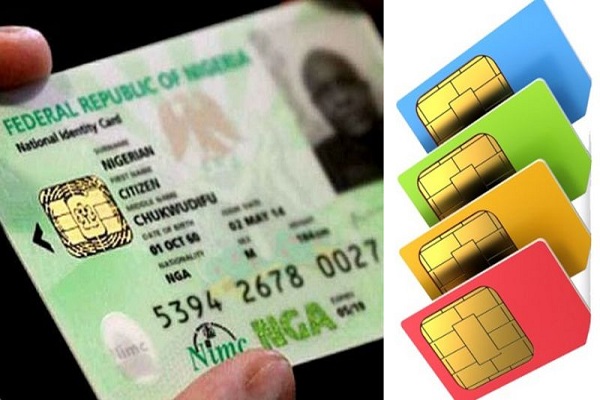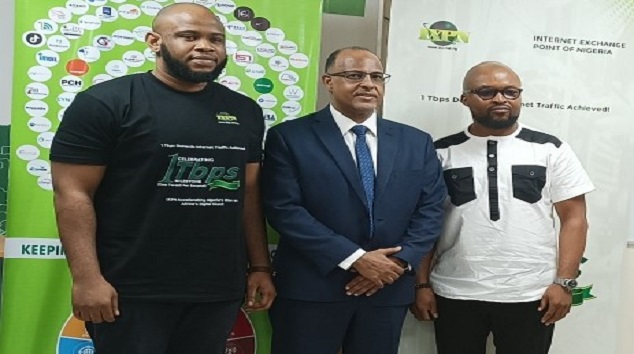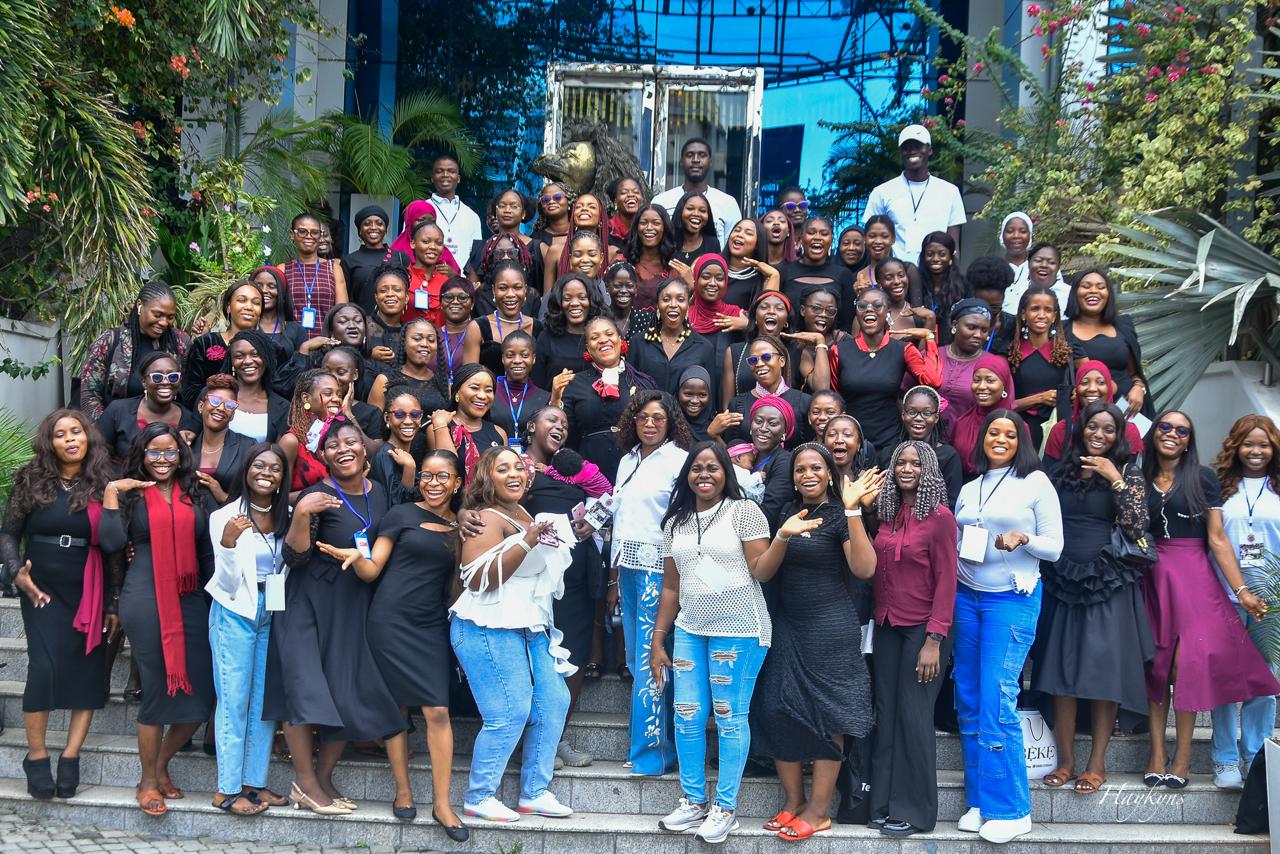Telecom
Why Millions of Africans are Right to Resist Mobile SIM Card Registration

By Dr Tony Roberts and Ridwan Oloyede
Mobile SIM registration linked to digital ID is causing exclusion of marginalised groups, and concerns about privacy in the absence of sufficient legal safeguards, especially in nations with a history of abuse by authorities.

These are some of the planks of an article published on Thomson Reuters Foundation website by Dr Tony Roberts and Ridwan Oloyede.
Dr Tony Roberts is a research fellow at the Institute of Development Studies, and a member of the African Digital Rights Network.
Ridwan Oloyede is a legal practitioner, research fellow and consultant based in Nigeria, and a member of the African Digital Rights Network.
According to the article, in recent weeks, millions of Nigerians have been barred from making calls after the government instructed telecommunications providers to disconnect their SIM cards because they failed to comply with the government directive to register and link them to their digital ID, known as the National Identity Number (NIN).
Most countries in Africa – 50 nations according to research by Privacy International – and around the world require SIM registration to identify the user.
However, Nigeria has gone further by requiring SIM cards to be registered and linked with a citizen’s digital ID, and therefore with the biometric data that it contains.
Nigeria is not alone in doing this: some 30 countries globally require SIM registration linked to digital ID including biometric data such as fingerprints or facial images.
Such a registration policy excludes many marginalised groups such as some ethnic minorities or migrant workers without ID proof such as a birth certificates, needed to obtain a digital ID.
This locks them out from obtaining a SIM – and therefore from mobile connectivity – and from government services that increasingly require mobile or internet service to access.
Secondly, SIM registration linked to digital ID is causing concerns about privacy rights – not only in Nigeria but also in Uganda, Zambia and Kenya – in the absence of sufficient legal safeguards to protect their data. More so, where there is a historical record of abuse by authorities.
From our research at the African Digital Rights Network, we believe citizens are right to be concerned. Linking digital IDs and mobile SIMs, and linking these with mobile banking apps and other digital services, is the “unholy trinity” of digital surveillance.
When combined with further government or corporate data, this surveillance stack enables governments to track an individual’s real-time movements, transactions, email, voice and social media communications, providing a powerful infrastructure for state surveillance.
Digital identification is becoming a central component of repressive digital surveillance. In the six African countries we studied, we found governments making major investments in surveillance technologies, not only in digital IDs and SIM registration, but also in CCTV, encryption breaking and car licence plate and facial recognition systems.
They also created laws forcing telecom companies to capture and store citizens’ communications for possible state use.
In Nigeria, that fear was exacerbated in February, when it was reported that President Muhammadu Buhari had allowed security agencies to access the NIN database. The government’s argument for mandatory registration of SIM cards linked to digital IDs hinges on security, and allowing governments to track criminality. However, there is no evidence that mandatory SIM registration lowers crime or makes a difference in crime detection.
Everyone wants governments to track the most serious criminals to prevent mass atrocities. But citizens also want governments to respect and protect everyone’s right to privacy. Due to the covert nature of surveillance, and the large power imbalance between the state and the people being watched, there is a clear opportunity to abuse power: our research on surveillance law in Africa shows that most surveillance is conducted on political opponents, business rivals, journalists, civil society activists and low-level criminals. These are all in violation of privacy rights.
In most African countries including Nigeria, it is also in violation of the constitution, international human rights conventions, and domestic laws which protect privacy of communication.
However, branches of the state regularly violate this privacy law, and they do so with impunity, with no accountability for such violations.
To protect citizens against abuses of their data and privacy rights, robust data protection and privacy laws are needed that provide for independent oversight bodies with the independence, resources and power to monitor surveillance practices, and hold governments and corporations accountable for any breaches.
Citizens have a right to legal citizenship and to access government services and entitlements. This should not be contingent on a biometric ID system that locks out the most vulnerable, and enables repressive governments to conduct mass surveillance.
Telecom
Nigeria Hits 1 Terabit Internet Traffic Milestone

IXPN, Nigeria’s leading Internet Exchange Point, is proud to announce a landmark achievement: crossing 1 Terabit per second (1Tbps) in aggregate peak domestic internet traffic for the first time.

This milestone signifies a major leap forward in developing Nigeria’s internet infrastructure and underscores the critical role of local internet infrastructure in driving economic growth, innovation, and connectivity for millions of Nigerians.
“This milestone is more than just a number. It’s a symbol of Nigeria’s digital maturity and our united strides towards becoming a tech-driven nation. By keeping local internet traffic within Nigeria, we reduce costs, improve speeds, and ensure our digital economy thrives with homegrown infrastructure.” said Muhammed Rudman the CEO of IXPN.
“Achieving 1 Tbps is a significant victory for Nigeria’s ICT ecosystem, a breakthrough for domestic internet traffic. It serves as a catalyst, enabling millions of Nigerians to enjoy faster, more affordable, and resilient internet connectivity.”

1 Terabit per second is a game-changer for Africa’s most populous country. To put it in perspective:
- Mega Video Calls: A speed of 1 Tbps can support over 1 million concurrent Zoom calls, allowing students, entrepreneurs, and professionals to connect and drive Nigeria’s digital revolution.
- Streaming Frenzy: With 1 Tbps, more than 200,000 people can stream HD Nollywood films or movies on Netflix simultaneously without any buffering or interruptions.
- Data Superpower: This speed enables the transfer of the entire contents of 50,000 smartphones—including photos, apps, and videos—in just one second.
For Nigeria, hitting this milestone means reducing reliance on international bandwidth, decreasing latency for local services, and strengthening our position as Africa’s digital heartbeat. This milestone is a testament to the power of collaboration, innovation, and the relentless pursuit of a faster, more connected Nigeria.
This accomplishment goes beyond technical advancements; it has significant economic implications. By encouraging local traffic exchange, IXPN reduces dependency on international bandwidth, leading to:
- Significant Cost Savings: By utilizing local data exchange, Nigerian businesses can save millions of dollars annually on international bandwidth fees.
- Enhanced Speed and Connectivity: With reduced latency, users experience smoother streaming, gaming, and real-time services, enhancing their overall online experience.
- Increased Resilience: Strengthening Nigeria’s internet infrastructure protects against global disruptions, ensuring consistent access to vital services such as healthcare and education.
- Improved Efficiency: Optimizes digital services like fintech, edtech, e-commerce, and e-health, propelling innovation and growth in these sectors.
Surveys conducted among IXPN members over the years have shown a growing percentage of local internet traffic in Nigeria. A recent report indicates that some connected members can localize or domesticate up to 70% of their internet traffic through IXPN.
“As more content providers, ISPs, banks, and public institutions localize their traffic through the IXP, end users benefit directly,” added Raphael Iloka (Marketing Manager). “We’re not just routing data — we’re building the foundation for Nigeria’s digital economy.”
The 1 Tbps peak highlights the remarkable impact of collaboration among all stakeholders. This milestone is a significant achievement not only for IXPN, but for the entire ICT ecosystem. IXPN deeply appreciates the vital contributions of all stakeholders involved.
To our Members and Partners: Your trust and participation have been essential to our growth. Together, we have established a hub where networks can interconnect, innovate, and thrive.
To the Government and Regulators: We express our sincere appreciation to the Nigerian Communications Commission (NCC) for all its support over the years and its vision of a digitally inclusive Nigeria.
To our Team: We extend our gratitude to our engineers, network administrators, and all other staff who work tirelessly behind the scenes to push boundaries.
To the Global Community: We are grateful to partner organizations like the Internet Society (ISOC). Your support and advocacy in domestic peering empower us all.
Reaching 1 Tbps is just the beginning. As data demands skyrocket with AI, IoT, 5G, and immersive technologies, IXPN is committed to staying ahead of the curve. Here’s how:
- Scaling Infrastructure: We are investing in advanced hardware and software to support multi-terabit capacities.
- Enhancing Resilience: We are strengthening our network to ensure uptime, security, and adaptability in an ever-changing digital landscape.
- Empowering Underserved Communities: We aim to expand our reach to rural areas, bridging the digital divide, and supporting agritech, edtech, and telehealth.
- Strengthening Africa’s Digital Sovereignty: Partnering with regional IXPs to keep Africa’s data on the continent.
Telecom
TD Africa’s TecHERdemy Empowers 400 Women to Lead in Tech

On April 17, 2025, the atmosphere at Yudala Heights was electric with pride, hope, and inspiration as TD Africa, the leading tech distribution company in Sub-Saharan Africa, celebrated the graduation of 400 young Nigerian women from its flagship TecHERdemy program.

Over the past six months, these incredible women immersed themselves in rigorous, hands-on training in Cybersecurity, Data Science, Artificial Intelligence, and Software Development. They are now confidently stepping into the tech world, ready to make their mark.
The event brought together top voices in the industry, including Dr. Leo Stan Ekeh, Chairman of the Zinox Group, who commended the graduates for their resilience and brilliance. In his keynote speech, he shared a hopeful vision for Africa’s future, calling these young women “the pioneers of a new, inclusive era of tech leadership on the continent.”
Mrs. Chioma Ekeh, CEO of TD Africa, also delivered a heartfelt message, urging the graduates to let their values guide them as they navigate their careers.
“Hold tightly to your values. Let integrity guide your work, let innovation fuel your dreams, and let your impact speak louder than your résumé,” she encouraged.
The ceremony was filled with emotion as graduates shared their personal stories of transformation. One of them, Yetunde Kayode, now a certified data scientist, summed it up beautifully: “This program changed my life. I’m walking away empowered, skilled, and deeply grateful to Mrs. Ekeh and the TecHERdemy team for believing in us.”
Fifteen exceptional participants were also honoured for their outstanding performance and leadership during the program, reminding everyone that excellence comes in many forms.
TecHERdemy, which launched in November 2024, was built with a simple but powerful mission: to equip young Nigerian women with globally relevant digital skills and open doors to a tech career. But what happened over those six months went beyond just skills; it sparked a movement.
This graduation wasn’t just the end of a program. It was the beginning of a brighter, more inclusive future for tech in Africa.
Telecom
MTN Nigeria Faces Class Action Lawsuit over Alleged Data Mismanagement

Nigerians have launched a class action lawsuit against MTN Nigeria, accusing the telecom giant of unexplained data usage and rapid depletion.

The controversy erupted after a viral post on X (formerly Twitter) showcased an individual’s interest in taking legal action, along with evidence of unusual data activity.
This post rallied many others to join the cause, sharing their own grievances and pledging support.
A Google Form was circulated to collect names of affected users, highlighting issues such as false data top-ups and excessive costs without value.
Comparisons to data usage and pricing in other countries only fueled the frustration, and numerous Nigerians expressed their determination to pursue justice.
Social media buzz amplified the issue, with mixed reactions ranging from encouragement to skepticism about the lawsuit’s potential impact.
Meanwhile, MTN Nigeria has not yet released an official response to these allegations.

 Telecom3 days ago
Telecom3 days agoMTN Nigeria Takes Broadband Services to the Next Level with FibreX Launch

 News3 days ago
News3 days agoSERAP Files Lawsuit Against NBC Over Ban on Eedris Abdulkareem’s Protest Song Tell Your Papa

 Telecom2 days ago
Telecom2 days agoDigital Transformation Remains Africa’s Gateway to Economic Advancement – Adumike

 Telecom2 days ago
Telecom2 days agoPAFON 2.0: Experts Discuss Pathways to Boost Financial Inclusion in Nigeria

 General News2 days ago
General News2 days agoEFCC Clarifies SCUML Certificate Misuse amid CBEX Ponzi Scheme Scandal

 E-Financial2 days ago
E-Financial2 days agoCBN, NGX Group Defend Economic Reforms at Nasdaq

 E-Financial3 days ago
E-Financial3 days agoFCMB Group Redefines Corporate Storytelling with The Power Of The Group TVC

 News2 days ago
News2 days agoUN Says Billion-Dollar Cyberscam Industry spreading Globally




















